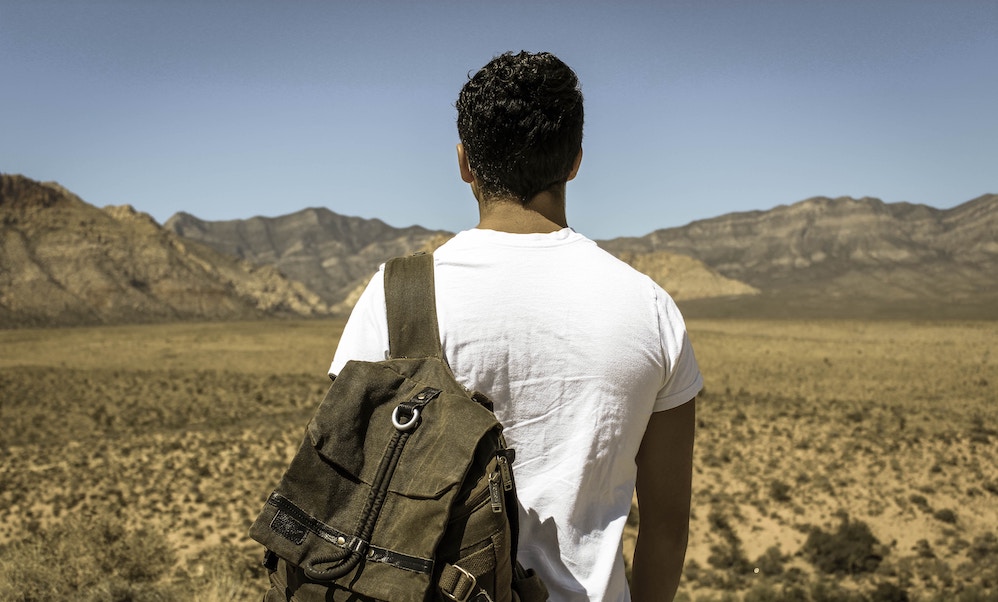A couple of months ago, during a time of meditation, I had a chance to engage in some thoughtful self-reflection. While I looked inward, I revisited a point in my life two years ago when my focus was on taking the next step in my professional career. Two years ago, self-doubt, anxiety, and uncertainty about the future riddled my mind.
Looking for the answer to my internal longings, I spoke to my therapist who asked me: “Do you ever just enjoy the present moment?” I quickly became defensive because I knew the answer was, “No.” I had such a strong desire to control everything in my life, even what wasn’t in my control. Everything I had at that point in my life was something that I had once wished for, but I still couldn’t seem to find the silver lining or true peace of mind. I was always searching for that “next thing.”
The opportunity to boost my career and gain more financial freedom was my “next thing.” For some, that “next thing” always seems to be what we reason in our minds, will cultivate a sense of mental peace and bring us contentment.
The internal dialogue usually sounds like this: “As soon as I get *insert whatever it is you want here* I will be happy and fulfilled.” But the truth is once we get that accolade, achievement, or accessory we’re vying for, we’re just priming ourselves to want more of it.
As a society, some of us have been primed to correlate our value and success to whatever we have achieved. Our constant pursuits of success create in us a sort of dependency that makes our minds increasingly reactive. Often, we spend so much time looking into the future, that the present moment seems fleeting.
I’m sure many of us can relate, but the question then becomes, how do we cure this dependency? The answer is to live with intentionality, or, as you’ve probably heard it called, with mindfulness.
What is Mindfulness?
The concept of mindfulness has been a mainstay in South Asian and Eastern culture for thousands of years. Gradually, the ideas of mindfulness have permeated into Western culture, and today, the practice has gained a lot of traction in the fields of self-help, spirituality, psychology, and in general pop culture.
[RELATED: The Baggage We Never Unpack]
It’s not news that South Asians emphasize finding success through hard work and determination. Often as desis, we internalize those values through rigorous self-criticism and self-deprivation. It’s ironic, you could say, that this lifestyle at our culture’s core is counterintuitive for lasting contentment and living with ease.
Mindfulness is the essential human ability to be fully present, aware of where we are and what we’re doing without being overly reactive or overwhelmed by what’s going on around us. Mindfulness is embracing the here and now without judgment or criticism.
Mindfulness also challenges us to awaken from these anxious mental habits and appreciate the little things. Our minds are deceptive. Once we stop situating ourselves in the present moment, we become preoccupied with obsessive thoughts about something that just happened, or we begin to agonize about the future, creating unnecessary anxiety.
[RELATED: Self-Care Is Not a Luxury: How I Learned This as a Brown Guy]
Mindfulness is transformative. When we’re more mindful, we’re able to suspend judgment and embrace ourselves with self-compassion. Practising mindfulness reduces our stress, increases our awareness, enhances our performances, and heightens our insight into ourselves and others.
Unsurprisingly, mindfulness is something I often prescribe to my clients to help them break the negative cognitions that form from anxiety, depression, panic, and other traumatic events.
How Do We Incorporate Mindfulness?
Mindfulness requires proactive engagement. Being 100 percent engaged is not always natural in our era of digital distractions. From the apps we use to the media we consume, everything changes at such a rapid pace, and it can be a struggle to keep up.
Incorporating mindfulness may seem overwhelming, but you can effortlessly weave into your ordinary routines. So, how can we incorporate mindfulness into our daily lives? Here are some ways to start:
- In social interactions, mindfulness is actively listening and not zoning out (even a little) when someone tells the same story for the third time.
- Mindfulness also means using all your senses when doing something, even in mundane situations like washing the dishes, folding laundry, or walking to the train station.
- Mindfulness can even resemble slowing down when you’re eating to appreciate the tastes and textures of the food you’re enjoying.
- Mindfulness can incorporate meditation, where there is a deep focus on your breathing to help you become more aware of the present and the sensations in your body.
In essence, mindfulness is being more aware of the present and learning to embrace the here and now.
Takeaway
Meditation has been a part of my regular morning routine for the past few years. The way you start your morning can dictate the energy and emotions of the day. Many of us often grab our phones and attend to the demands of our day. We cannot control how our day unfolds, but what we can control is how we respond to the situations of our lives.
The questions I pose to you are: How often are you living in the present? How often do you enjoy the mundane? How often are you living with intentionality?
We can either control or embrace our future. When we spend our time and energy trying to control every aspect of our lives, we become disappointed when it doesn’t live up to how we envisioned it. When we embrace our future, we learn to be fluid, flexible, and adaptable. We can regulate our focus to improve our gratitude, wellness, and enjoyment.





